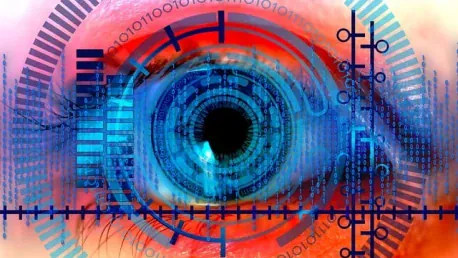In recent years, there has been a rapid evolution in digital identity systems and biometric technologies, with significant advancements paving the way for more secure and convenient transactions across various sectors. As we move further into 2025, the integration of these technologies into our daily lives has become increasingly prevalent, shaping the way we interact with businesses, governments, and each other.
Innovative Biometric Payments
One of the most notable developments in this field is J.P. Morgan Payments’ introduction of new biometric payment terminals at NRF 2025. These innovative devices, known as the J.P. Morgan Paypad™ and J.P. Morgan Pinpad™, streamline transactions through embedded facial or palm recognition technologies. This means that users can now complete their payments more swiftly and securely, whether they prefer using chip, contactless, swipe, or QR code methods. By incorporating these advanced biometric solutions, J.P. Morgan is setting a new standard for payment security and user convenience.
Identity and Access Management in Retail
The retail sector is also seeing significant improvements in identity management, particularly through the adoption of cloud-based Identity and Access Management (IAM) systems. At Identity Week Europe 2025, experts will discuss how these systems are transforming retail operations by securing workforce data and streamlining authentication protocols. One of the main goals is to achieve a passwordless future, which would enhance security and simplify the user experience. This shift towards more efficient and secure IAM systems represents a crucial step forward for retailers looking to protect both their employees and customers.
Humanity Protocol’s New Foundation
In another groundbreaking move, Humanity Protocol has announced the launch of the Humanity Foundation. This organization aims to drive the adoption and innovation of decentralized identity technologies, with a strong focus on privacy-preserving biometric verifications. By promoting these advanced solutions, the Humanity Foundation is working to ensure that individuals have greater control over their personal data, while also enhancing the security of digital identity systems.
Global Business Identifiability
Collaboration between the Global Legal Entity Identifier Foundation (GLEIF) and the UK’s Companies House has resulted in a new initiative aimed at improving the accessibility and transparency of UK business registration data for Legal Entity Identifier (LEI) users. This partnership is a key step towards making business information more readily available, thereby supporting better-informed decisions and fostering trust in the global market. Enhanced business identifiability is crucial for maintaining the integrity and efficiency of international transactions.
Biometric Visa Requirements in Italy
Italy is also making strides in the realm of biometric security with its new mandate requiring biometric data collection for all long-term visa applications. This move aligns with global security trends and underscores the importance of biometric technologies in ensuring the safety and integrity of national borders. By implementing these measures, Italy aims to enhance its visa application process and strengthen its overall security framework.
AI’s Role in UK Economic Strategy
The potential of artificial intelligence (AI) to boost the UK’s economy was highlighted by Keir Starmer, who discussed how AI could increase public service productivity and drive business growth in AI sectors. The strategic integration of AI into various facets of the economy promises to revolutionize public services and support the development of cutting-edge technologies. However, it also raises important questions about the ethical implications and potential risks associated with AI, particularly in terms of surveillance and privacy.
Human Trafficking Prevention
The fight against human trafficking has been bolstered by initiatives such as the Georgia Department of Driver Services’ support for National Human Trafficking Prevention Month. This effort emphasizes the critical role of truck drivers in identifying and reporting signs of trafficking. By raising awareness and providing the necessary tools, this initiative aims to combat a pervasive and deeply troubling issue.
Relx’s Shift to AI Fraud Detection
Relx, known for its scientific publishing, has pivoted towards AI-driven fraud detection through its LexisNexis Risk Solutions division. This strategic shift reflects the growing importance of AI in identifying and preventing fraudulent activities across various industries. By leveraging advanced AI technologies, Relx is positioning itself at the forefront of fraud prevention, offering robust solutions to protect businesses and consumers alike.
DNP’s Digital ID Market Entry
DNP has entered the digital identity market with the formation of an Asia Pacific consortium dedicated to promoting cross-border digital ID interoperability. This initiative underscores the importance of seamless digital identity systems in facilitating international transactions and fostering economic growth. By championing interoperability, DNP is contributing to the creation of a more connected and secure global digital economy.
Government ID Solutions from HID
In recent years, digital identity systems and biometric technologies have rapidly evolved, leading to significant advancements that ensure more secure and convenient transactions across multiple sectors. As we progress further into 2025, these technologies have become increasingly integrated into our everyday lives, fundamentally reshaping interactions with businesses, governments, and individuals. The adoption of digital identity systems has simplified processes such as authentication and verification, reducing the need for physical documents and minimizing fraud risks. Biometrics, including fingerprint, facial, and iris recognition, are now frequently used for secure access and identity verification, offering increased security and efficiency. This integration is evident in sectors like banking, healthcare, and travel, where digital identities streamline services and enhance user experiences. The convergence of these technologies not only heightens security but also boosts accessibility and convenience, marking a significant shift in how we handle and protect personal information in an increasingly digital world. As this trend continues, it will likely drive further innovations and improvements across various fields.









